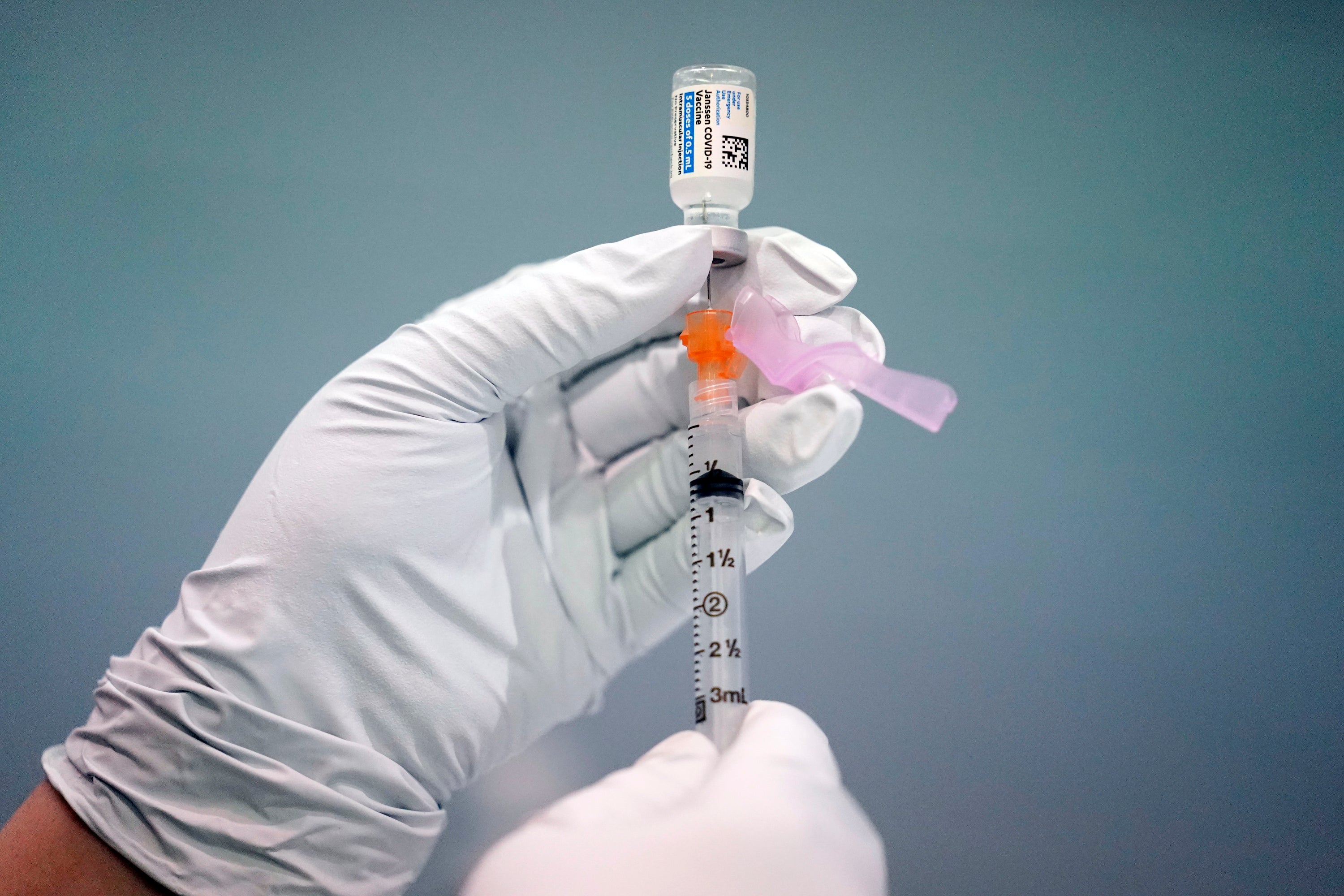US officials flag "small" reaction risk with J&J vaccine
U.S. health officials say Johnson & Johnson’s COVID-19 vaccine may pose a “small possible risk” of a rare but potentially dangerous neurological reaction

Your support helps us to tell the story
From reproductive rights to climate change to Big Tech, The Independent is on the ground when the story is developing. Whether it's investigating the financials of Elon Musk's pro-Trump PAC or producing our latest documentary, 'The A Word', which shines a light on the American women fighting for reproductive rights, we know how important it is to parse out the facts from the messaging.
At such a critical moment in US history, we need reporters on the ground. Your donation allows us to keep sending journalists to speak to both sides of the story.
The Independent is trusted by Americans across the entire political spectrum. And unlike many other quality news outlets, we choose not to lock Americans out of our reporting and analysis with paywalls. We believe quality journalism should be available to everyone, paid for by those who can afford it.
Your support makes all the difference.Johnson & Johnson’s COVID-19 vaccine may pose a “small possible risk” of a rare but potentially dangerous neurological reaction, U.S. health officials said Monday.
The Centers for Disease Control and Prevention said in a statement it has received reports of 100 people who got the shot developing Guillain-Barré syndrome, an immune system disorder that can cause muscle weakness and occasionally paralysis.
That number represents a tiny fraction of the nearly 13 million Americans who have received the one-dose vaccine. Most cases of the side effect were reported in men — many 50 years old and up — and usually about two weeks after vaccination.
The CDC said it would ask its panel of outside vaccine experts to review the issue at an upcoming meeting. J&J didn’t immediately respond to a request for comment.
The government said the vaccines most used in the U.S., made by Pfizer and Moderna show no risk of the disorder after more than 320 million doses have been administered.
Guillain-Barre syndrome occurs when the body’s immune system mistakenly attacks some of its nerve cells, causing muscle weakness and sometimes paralysis that typically is temporary. An estimated 3,000 to 6,000 people develop the syndrome each year, according to the CDC.
Vaccines historically provide broad protection with little risk but come with occasional side effects just like other drugs and medical therapies. The three COVID-19 vaccines used in the U.S. were each tested in tens of thousands of people, but even such huge studies can’t rule out extremely rare side effects.
The CDC and the Food and Drug Administration have been monitoring side effect reports submitted by physicians, drugmakers and patients to a federal vaccine safety database.
Guillain-Barre can be triggered by a number of infections, including flu, cytomegalovirus and Zika virus. But there have been rare cases in which people develop the disorder days or weeks after receiving certain vaccines.
J&J’s vaccine was highly anticipated because of its one-and-done formulation and easy-to-ship refrigeration. But early on, it was linked to another rare risk, of blood clots, and the company hasn’t been able to produce as much as expected because of problems at a Baltimore factory that helps make the shots.
___
The Associated Press Health and Science Department receives support from the Howard Hughes Medical Institute’s Department of Science Education. The AP is solely responsible for all content.